Lisa Niver's Blog: We Said Go Travel, page 365
September 14, 2014
A Little Help from the French
As a Canadian undergraduate student, chances for traveling to Europe are hard to come by; and so I jumped at the opportunity to tackle an exchange in Ireland for the spring semester of 2014. My experience abroad gave me a new confidence in my traveling abilities and an increased sense of wanderlust that propelled my interest in furthering my studies abroad. Luckily, I landed a scholarship from my home university that allowed me to attend a summer school course in Paris, France for two weeks in June. The journey from Ireland to Paris would mark my first excursion entirely on my own in Europe, relying on my own organizational skills and abilities to get me where I needed to go. As someone prone to daydreaming and forgetfulness, I knew this would be an interesting adventure.
I flew into Beauvais, an airport nowhere near the city centre of Paris, from which the only mode of transportation available is an overpriced coach bus shuttle that is quite cramped and lacks any air circulation. Eventually arriving at the outer rim of the city centre, it would take forty minutes by metro or fifteen minutes by taxi to the student hostel in Montparnasse. I chose metro, partially because it was less than 2 euro for the entire journey, and also because I knew it would be a struggle, and something to brag and/or complain about when completed. When one successfully maneuvers one’s way through the overlapping wires of the Paris metro, especially while hauling a large, stuffed suitcase, one feels quite accomplished.
There was something terrifying and exciting about being alone in a city that is as labyrinthine above ground as it is at subway level. As a city notorious for arterial streets and never-ending boulevards that is kinder to intrepid travelers than newbies like myself, Paris is overwhelming to the weary. There is not really ample time for second-guessing oneself or for pauses of self-doubt; you just do and try to fit into the Parisian flow of things as much as possible.
Finally I arrived at the student hostel in the early evening; it was a beautiful, century-old building full of character. My room was fantastic: it had typical Parisian windows and original floors, antique desks and a great view of the Boulevard Saint-Michel stretching down to the Jardin du Luxembourg. All of the challenges faced on the way were worth it to open up those Parisian windows and look out onto the street, knowing I was really in the city. By all means I was indeed “alone.” I did not know a single soul at the hostel; had yet to meet my fellow classmates or program coordinator; and was traveling without company. That said; one is never truly alone while traveling, as much as one would like to tout their independence and functionality without the help of others. This is simply is not the case.
You are never truly alone while traveling, even if you are literally on your own, independently making decisions for yourself. The people responsible for ensuring that all of the tiny background details are working are there too: such as metro operators; the kind strangers who offer to help carry your burdensome suitcase with you up and down those steep metro station stairs; and the waves of Parisians moving seamlessly throughout the city alongside you (and Parisians are very forthcoming when asked for help – rudeness is a wild misconception of them).
There is an orchestra of people behind the scenes in a city to keep it functioning and alive, that make is possible for visitors like myself to be independent there. In a city that relies on the participation and work of thousands of people, I came and went about as freely as I pleased. I was independent in making autonomous decisions, yet I was not alone.
Being free can be defined as, simply, competency. I am competent to be on my own with the support of others in a foreign city. I’ve made my own decisions in Paris, but I’ve also received the support and help of others there, too. For example, that first night in Paris, I intended on eating the single box of Kraft Dinner I’d brought with me from Ireland. It turned out that pots were not supplied in the hostel kitchens and I would have to rely on somewhere else to eat. McDonalds, a few minutes walk up the boulevard, became my first meal in Paris.
I look back on my experiences abroad with a redefined sense of freedom, a freedom of not always making the best decisions, and learning from these mistakes. That’s who I am: the imperfect traveler, at times bumbling along; while at other times, mildly impressed with my resourcefulness.
I believe the most freeing aspect of traveling independently in a city like Paris is realizing you are a mere microcosm of a greater network, all of us travelers and locals getting by with a little help from each other.
About the author:
Ashley Harvey is a creative spirit with various artistic interests, as of yet unsure where all of these interests connect. After a few years of creativity-related inertia, she has recently rekindled her love of writing, and intends to make good use of this spurt of ideas.
Thank you for reading and commenting. Please enter the Independence Travel Writing competition and tell your story.
The post A Little Help from the French appeared first on We Said Go Travel.
September 13, 2014
Finding My Soul in Yokohama, Japan
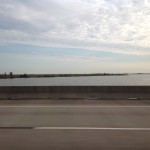
As a pessimistic, nine-year-old kid that doesn’t travel much, I was nearly blown away with the news that we were going to visit Japan. I was so excited! It was December of 2008, and we were leaving in just two weeks.
We arrived to Japan at the airport terminal. As soon as we got off the plane, I was already so excited. The cold air and the black, mysterious night twinkling with sparkly, diamond-like stars electrocuted a spark in me, a spark that wanted to find out what the mystery was. It practically lit a fire in me, an innate passion in me so deep and so beautiful that at that moment…something I’d never felt before. Staring into the deep, black ominous sky, I was seeing a new part of me.
Excitedly hauling my overstuffed suitcase down the ramp with its steep inclination, I was so excited! My heart was overflowing with bubbly, white emotions of excitement and contentment and joy and awe all at the same time.
Inside the airport as people bustled about, I was in a little kid’s wonder land. I felt like Alice from Alice in Wonderland when her whole world turned upside down…when everything went from black and white, to a paradise filled with color, filled with a whole new spectrum that was there the whole time—it just hadn’t been seen before. All of a sudden, I was capable of seeing pink, magenta, and gold, silver— this whole time Yokohama was there, I just hadn’t seen it. Paradise was in my backyard, but I’d never bothered to open the door.
After getting through the airport, we took a taxi cab to the apartment that we’d be staying in. We got inside the apartment, and it felt just like home. The best part was the bathroom…ELECTRONIC TOILETS!!! Woo hoo!
The apartment was compact, but in a good way—it was very cozy, and our family felt a lot closer when we were all living in a smaller space.
The next morning we went to Mount Fuji. It was a heavenly body…so tall, towering and majestic…it was so gallantly, magnificently mesmerizing that I couldn’t even begin to fathom, in my wildest dreams, how such an amazing work of art, could be thrown right onto the raw face of the Earth.
The giant mountain, stretching into the clouds so far up I begin to lose sense of space, is grey in its coarse, rocky nature with big mounds of rock, jutting outwards. Its every nook and cranny is filled with snow. For the first time in my life, in the presence of the majestic mountain, I feel free. I throw my hands up in the air, twirling around, seeing the entire country of Japan like its just a speck in the distance, stick my tongue out to taste the heavenly snow falling from Paradise, breathe into the air to see white smoke. I jump and dance and twirl and am one with the nature that surrounds me.
The cherry blossom trees with their beautiful, pink blossoms and the bareness that surrounds me become one. My eyes sink into the snow and my breath into the rock. The white, misty, bottomless, blue sky becomes my canvass and my emotions become my paint. My inner emotions come flooding out like raw colors on an easel, reds as scarlet as blood, orange more golden and sweeter than honey, blue saltier than grandma’s saltine sardines, pinks that sound like mockingbirds and nightingales singing in melodious harmony, and a cascading, blinding white that glares into my eyes and into the piercing night…breaking away like a terrestrial body. My body becomes a distant memory, an emotion. My heart combines with the nature. I take in the cold, bitterness of the air, the white, powdery snow into my hands…the flying reds and blues and pinks splattering paint all over the canvas. I look into my heart and my eyes and the ocean surrounding us. I’m on top of the world.
For the first time in my life I feel free. Free to dance, to sing, to forget about time, about television, about the drama, about school, about life. I feel free to forget and forgive and let it all go and become one with nature, one with Yokohama, one with Mount Fuji. Standing there on the mountain, time stands still. The clock has stopped ticking. I’m standing on the line between life and heaven. It’s a feeling that you can’t mistake. I don’t just feel “free” in the usual sense of the word. I am free.
About the author:
I’m a high school student that enjoys reading, spending time with family and laughing to anything and everything. I like watching reruns of “I Love Lucy” and older shows that evoke lots of laughter.
Thank you for reading and commenting. Please enter the Independence Travel Writing competition and tell your story.
The post Finding My Soul in Yokohama, Japan appeared first on We Said Go Travel.
One if By Land, Two If By Sea in the USA
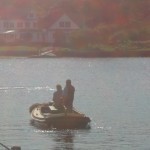
Perhaps the two camera-ready beluga whales at Mystic Aquarium sent me a telepathic message in the vein of Paul Revere: a pair of creatures, bright as lanterns, appearing before my eyes called for a sea journey. This wasn’t what a non-swimmer liked to hear but the Marylander who spent school days cleaning the Chesapeake was slightly intrigued. In contrast to the crucial battle fought on my hometown bay in 1781, Mystic Seaport possessed no conflict or strife or fireworks in 2014. It stood as a united and peaceful maritime village where only the masts were rambunctious under an unbound sky of wooly clouds. Yet I found that the margins of the sea held many treasures. The presence of our inalienable rights floated in the salty Connecticut air past a horse-drawn carriage and candle-stacked chandlery.
After encountering the stoic Lego-made Mark Twain in Hartford and the behemoth bovine structure in Beardsley Zoo, I yearned for a less formidable structure that wouldn’t dwarf my five foot two frame. I photographed a couple sailor nutcracker dolls in the gift shop for that reason. But once the seaport willingly opened up its carefully preserved ships to my vision, I was steered towards the towering boats’ grandeur. The 1841 wooden whaling vessel Charles W. Morgan, in its docked glory, ran eighty years to transport passengers all over the world. I imagined Americans meeting men of other countries much the same way dignitaries and senators meet today where I work near Capitol Hill. As budding sailors embarked on summer day camp expeditions, with neon life vests, I thought how smoothly they could move now when the Morgan had to find its way past Arctic ice and other barriers. Through perseverance, liberty and assembling together became easier for successive generations, making the land and sea more available for a metropolitan sightseer.
My personal favorite discovery was a restored printing press, aged but operable, a throwback to an era where print on paper dominated entertainment and the eyes of our country’s founders. This coal-black instrument with inky edges, separate cases for uppercase and lowercase letters, and weighty lever thrilled me as much as blocked Twain who I took multiple pictures with. Centuries earlier in other New England cities, to place each block meant a stepping stone to more literary freedom. To see the press churn out each page was an event, a call to action. As a historical fiction writer in modern times, I paid close attention to the editorials and bylines of a bygone era. But the efforts of contemporary reporters sat there side by side. The finished copies lay on a varnished surface, drying, a riveting reminder of a Constitutional amendment.
Words were in short supply as I entered Fishtown Chapel, a demure white house of worship with only a dozen benches. I was curious to find out that it never had its own pastor. Sermons jumped out at me all of a sudden. Phantom but devoted voices sprang out of outside speakers. No stained glass windows adorned the building but the precious and moving bits of speech kept me in the heated sanctuary. This church claimed no pastor but the come and go tenants had the freedom to speak and pray no matter the religious beliefs of entering tourists or the judgments of passersby. The chapel doors were still open when the voices died.
After they closed, I went searching for the stars in Treworgy Planetarium. It was a smaller planetarium that could be viewed as a Copernicus-type clubhouse. Beyond intelligent narration, there was something liberating about seeing the full spectrum of the cosmos, even in cramped chairs. Constellations became firmer, more intense when I remembered, that for a time, only they were the guides for sea-bound navigators. Magellan, though a man of religious fervor, banked on his faith in the stars throughout his discoveries, watching the gods outlined in them for direction. The church and planetarium of Mystic Seaport were in close proximity, maybe to illustrate that freedom remains a tenet for anyone who has faith in a mission, including myself.
My mission beside the sea ended at five in the evening. The bank with its golden-rod scale locked its long-standing compartments. Black and white pictures of turn-of-the-century sailors faded into the dark. The white steed taking others on carriage rides gave me a last peek and pitiful smile. But this Mid-Atlantic traveler took away a whole new appreciation for the shining sea near Connecticut. Our hard-earned freedoms from long ago don’t lay dormant on the shore; they shape and thrive on them in Mystic. I bet even Lego Mark Twain would come apart at the thought of these rights being taken away. One woman by way of Maryland found twice the reward by going by the sea.
Thank you for reading and commenting. Please enter the Independence Travel Writing competition and tell your story.
The post One if By Land, Two If By Sea in the USA appeared first on We Said Go Travel.
September 12, 2014
Home on the prairie in the USA

A little home on the prairie
A cottage at the top of the hill
With a stone pathway down to the brook
With lively grass dancing in the wind as you walk down
A silhouette outline; White light
Beauty with a smell of fresh dew as you near the river
The dandelions and sunflowers waving to you as you pass near
Excited by your smile; They move gently
This, This, I miss
Stuck in the city
No nature near
Lonely without mother; Mother Earth
Yet here in the cold dark frostbite of life
A spark of light appears
Hope; A light in the dark
To tell me not to fear
My smile; Our smiles
More than enough
Together as one; Take my hand
We can brave this storm
My voice a guide as I gently sing this lullaby
Like a Siren of the Sea
Sing, Sing, Sing
Like Zues, Big and Mighty
The warrior in me guides me
Stronger and Fiercer
Humble and Gentle
The Perfect Mix
Duo; Balance
In Me; Us
More than you ever believed
Imagination the strongest Key
Fairies, Unicorns, Dragons
They all come to life
Like reading a Fairy Tale
Or a Comic Book
A novel Or a scripture
Binding me and gripping on to my attention
The look of awe on my face turns to a smirk
Then as my eyes lit up; The cheesiest smile came across my face
Bright radiant.. That light
Of Love Hope and Prosperity
Mixed in with the Vaguest sense of Mystery
Alluring; My breath it did take
That’s when I knew; I knew
There was something more in me
Not cocky; Not bold
Just a premonition on the infinite creatures we can become to be
My love for this life is more than words could ever recreate
I could go on and on and talk you ear off
Or write a novel in the matter of a day
I wish everyone felt this way
If only ambition for knowledge was accepted
Rather than rejected
A love for the simple, natural, eternal
Rather than that artificial and stressful
Monetary values are good, but its a chase to no end
An empty void
Money spent well with loved ones
Same as that of time; Fill your time with meaningful people
Find meaning in the littlest things
Like an ant, a bird, or a bee
And I assure you you will be quite intrigued
My soul is old; My heart and self young
Call me naive; I prefer wise
Words are words
Use your words wisely
Use them in spite
I’ll conserve mine for faith and love
Corny or cheesy
I seek for a hope in humanity
If that’s wrong; I don’t wish to be right
I rather plague myself with the beauty I see
In the Morning sky as that of the Moonlight
Like a shooting star
I just want to make everything and everybody shine
To find that radiant soul of yours inside
Pardon me, but I want Magic and Love
Everywhere I go
Don’t you feel the same?
Thank you for reading and commenting. Please enter the Independence Travel Writing competition and tell your story.
The post Home on the prairie in the USA appeared first on We Said Go Travel.
Daruvar, Croatia: From Holes to Healing
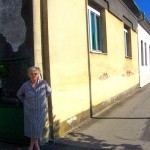
Daruvar, a small town of nearly 9,000 people in northeast Croatia is my place of freedom. It’s the only place I can ever remember that made me feel truly grateful for being alive.
Growing up, I frequently traveled to Daruvar because my mother was born and raised here and her entire family continued to live here even after she emigrated to the United States.
From 1991-1995 the Croatian War of Independence was raging on in Yugoslavia and my entire extended family, as well as all of the inhabitants of Daruvar, were in the midst of horrendous warfare.
One of my first memories of visiting my Baka (grandmother) in her Daruvar home was the facade of her house. At first glance, it was just a house. But upon further inspection I discovered large imperfections in the stone. Gaping holes and tiny precise holes scattered the exterior. It was an old house so I thought perhaps it was beginning to chip away. “No,” my cousin told me, “they’re from the war—it’s parts of bombs and bullets.” I looked closer and it made sense.
My cousin went on to explain that during this time, our family often hid under tables, or in the basement, with the blinds pulled, the television news on mute, and with immense fear in their hearts. He said that the buzzing of planes just above was an every day occurrence and the sound of bombs hitting the ground was deafening. He told me about spider webs, explosives thought to expel diseases, lighting up the sky.
Even more heart-wrenching was what he described they saw when they emerged from hiding— total and utter destruction. Buildings were flattened, shrapnel was lying all over, and sometimes there was even blood. After one of the attacks, my cousin said that a man covered entirely in blood sought refuge in my Baka’s house.
Although all of this carnage and sadness makes it sound like Daruvar isn’t a positive or uplifting place, it truly is. Daruvar is my place of independence because through my visits here, I have seen what it has become.
During my time here as a young adult, I saw new buildings erected, war monuments built, and a feeling of revival in the air. I witnessed tourism increase due to their updated and improved natural hot springs—water believed to heal. Rehabilitation spas began to sprout up. Energy and life was beginning to fully breathe into Daruvar. I truly feel that I saw the town slowly transition from a place of wreckage to a place of strength and healing.
The most remarkable thing I gained from my trips here was a true appreciation for life.
Once, when sitting at an outdoor cafe in downtown Daruvar, a middle aged woman passed us and my Croatian relatives said hello to her. They told me later that she lost her entire family in the war—her husband and her little boy. Another man, who was very old and walked with a hunchback propped up by a cane, passed us sometime later. My family told me he was severely injured in the war.
I was absolutely amazed that everyone here had a story. Everyone was affected by this horrific war in one way or another, but everyone picked up the pieces and managed to go on. The people, the buildings, the town itself, refused to wallow in sadness and instead, chose to prosper. And they did.
The transitions of this small town and the relentless pursuit of a life of happiness here have given me immense inspiration to live my life to the fullest. I am moved to live every day with gratitude and to appreciate the small gifts life gives me. Daruvar is my place of independence because my time here has allowed me to discover how incredibly lucky I am to simply be alive. And even though I, too, have scars on my exterior, I am not afraid to wear them as a reminder of my past and an inspiration to be better than I was before.
About the Author: Kat is a travel enthusiast having traveled to well over a dozen countries and to four continents. Her favorite travel experience was camping in the Sahara desert of Tunisia and riding camels there too! When she isn’t writing, she is playing with her two rambunctious dogs and dining out with her hubby.
Thank you for reading and commenting. Please enter the Independence Travel Writing competition and tell your story.
The post Daruvar, Croatia: From Holes to Healing appeared first on We Said Go Travel.
8 Top Things to See in the Netherlands
Vivid images of colorful countryside and rustic villages come to mind when the Netherlands is mentioned. It is a stark contrast to the other highly urbanized places in Europe, and is a delight to visit for those looking for a more relaxed atmosphere. Not to be missed are the following:

1. The Canals of Amsterdam
The wealthiest city in the world during the 17th century, Amsterdam is the commercial center and is the capital of the Netherlands. Its most popular attraction is its extensive canal system, measuring a hundred kilometers. Take an Amsterdam Canal Cruise Holiday to better appreciate the rich maritime history of this “Venice of the North” and see the beautiful ancient architecture, age-old windmills and picturesque parks along the way. While in Amsterdam, visit the Van Gogh Museum, home to a large collection of the works of Dutch Post-Impressionist painter Vincent van Gogh and some of his contemporaries.

2. Keukenhof Gardens
Located in Lisse, southwest of Amsterdam, the magnificent Keukenhof Gardens is the largest flower garden in the world. It is a stunning showcase of the Dutch floricultural industry, and boasts of seven million spring flowering bulbs in lovely colors. Open only during the first two months of spring, Keukenhof also features its own art collection and hosts exhibits.

3. The Windmills of Kinderdijk
Aside from canals and tulips, windmills may be the most iconic attraction of the Netherlands. The windmills were built as a flood control system, a big part of Holland being below sea level. The village of Kinderdijk in South Holland is a UNESCO World Heritage site with its well-preserved collection of 19 windmills dating back to 1740.

4. The Walls and City Gates of Amersfoot
Amersfoot is a well-preserved medieval city, with 13th century defensive walls and gates still intact. A visit to the town will give you a sense of how life was during medieval times. The Muurhuizen wall houses, which are houses built into the city walls, are amazing.

5. Grote Markt of Haarlem
The main town square of Haarlem, Grote Markt or Grand Market is an interesting mix of impressive centuries-old architectural masterpieces including the town hall, the Grote Kerk or Great Church, the Fieshers’ Hall – the old fish market which is now a gallery for modern art, and the Vleeshal – the old meat market which is now home to the National Archive.

6. The Canals and Castle of Leiden
Just like Amsterdam, it has a quaint canal system that offers beautiful sights. The oldest university in Netherlands found in 1575 is located here. From the city’s famous 12th century De Burcht Castle, one is rewarded with panoramic views of the old Rhine.

7. The Buildings and Mansions in The Hague
Although Amsterdam is the capital of the Netherlands, The Hague is the seat of the government. It has a cosmopolitan vibe and has stately buildings and grand mansions, including the majestic Peace Palace, which houses the International Court of Justice. Known as the “Royal City by the Sea,” the Hague is home to many members of the Dutch royal family.

8. The Delta Works of Zeeland
Considered the world’s best and biggest storm barriers, the Delta works have been called the “8th wonder of the world.” These were developed after deadly flooding hit the town in 1953.
*****
Photo credits:
Amsterdam Canals: Lyn Gateley via Flickr
Keukenhof Gardens: Robert Lyle Bolton via Flickr
Windmills of Kinderdijk: bertknot via Flickr
Muurhuizen Wall House: Jynto via Flickr
Grote Markt of Haarlem: Floris Looljesteijn via Flickr
De Burcht Castle: Paul Morris via Flickr
The Peace Palace: Roman Boed via Flickr
Delta Works: Jinterwas via Flickr
The post 8 Top Things to See in the Netherlands appeared first on We Said Go Travel.
September 11, 2014
I Was a resident of Berlin, Germany for Six Days

“You may say, “But this is our time, we have this time.” No, only the space in this time. And also – just part of the space, that one you understand. .. You own a few hours in a foreign city. You can buy souvenirs at this time. They will belong to you. You can buy things, even a ticket to a concert. And when you will leave, your things, souvenirs and tickets, used small papers, will be with you. Because the sounding and longing of a song did not and will not belong to you. The roaring and soughing of a city did not and will not belong to you. The soughing and roaring, hopes and longing are – time that cannot be captured. It is not owned by anyone.
You only had the right to hear it, participate in it. And, in case you had the power, you could increase the intensity of the time. That’s it.” – Imants Ziedonis (1933 – 2013), Latvian poet and writer
It was a hot morning in August 2012 when I woke up in the middle of Berlin. The former Tempelhof Airport stretched before me being unusually quiet. Only one small airplane was hiding near a large building under whose roof was placed a tent camp. I had the opportunity to participate in Campus Party Europe, one of the most ambitious world’s technology festivals, under its invitations programme.
My mother had the chance to take a trip to this city just once – during the Soviet times. Consequently, she was allowed to enter only the eastern part of Berlin. But I still remember how excited she was when telling me about the street that Germans call ‘Unter-den-Linden’ (‘Under the Linden Trees’). Her voice sounded as if it were a fairytale in which she happened to be for a while.
The last days of August seemed still striving to prove me that this was a hot week. The temperature was about +30°C. That did not lessen my greedy wish to see the city. It was my next-to-last day in Berlin. I went out to the Columbiadamm. This street is named after the American airplane Columbia on which Clarence Chamberlin and Charles Levine made their first flight from New York to Berlin in June 1927. They arrived at the Tempelhof Field. What followed was a touring of the city, autograph sessions, and a private meeting with President von Hindenburg.
On my schedule was a simple touring of Berlin. I walked through the city by foot several hours, and at six o’clock I found myself standing on the Glinkastraße. I suddenly noticed that the street was too quiet for a Saturday evening, and there were too many policemen. Maybe an official visit… I had barely managed to think it when a large demonstration appeared on the Glinkastraße. The German youth were coming.
The most part of the young people simply walked along the street. Sometimes, in the middle of this serious and – at the same time – glad stream showed up special cars with big placards. Then, a van rolled. Its arrival was accompanied by a song from the Russian band Pussy Riot. Through the loudspeakers the music sounded even mightier. Several policemen went by, one of them was holding in his hand a video camera that was turned off.
I hastily tried to free some space for new photos in my amateur camera that was almost full. I had time to make a few images, one of them is special. The evening sun is shining on young smiling people; in the middle of the pic, a placard reads: “Davon werden wir unseren Kindern erzählen” (“Things we will tell our children”).
And I have to remember the famous flight of a West German teenager Mathias Rust. His air travel was completed when I was attending high school during the Soviet times. He shocked the world, by landing his aeroplane in Red Square, right in the centre of Moscow. “They were laughing and happy,” now recalls Mathias Rust speaking about the people he met there.
Rust was found guilty of violating Soviet airspace and sentenced to four years in a labour camp. Later, he was released as a gesture of good will after serving only 14 months. But the smile did not disappear from our faces when we were talking about his flight. This event was a clear evidence that the so-called Soviet power is not almighty.
Thank you for reading and commenting. Please enter the Independence Travel Writing competition and tell your story.
The post I Was a resident of Berlin, Germany for Six Days appeared first on We Said Go Travel.
Couchsurfing around the world

If you’ve ever thought of backpacking, or you have backpacked, or are currently backpacking, you most likely have heard of Couchsurfing. For those of you who have no idea what I’m talking about – Couchsurfing is a travel community of sorts where people all around the world, in many different countries, open up their homes, couches and spare beds, to travelers at no cost. Travelers can set up their itinerary on the site allowing hosts in the area to view and invite them to their homes. Travelers can also review profiles of hosts and send personal requests. Yes, you are staying with a “stranger” but almost all hosts are travelers themselves and use it as a way to meet people of different cultures and learn about different parts of the world.
You should use it this way too!
I’m a traveler and so I know the expenses that we have while traveling. I know living on a tight budget and thinking, “if I just have half a sandwich for lunch, I can eat the rest for dinner and therefore don’t have to pay for two meals.” So I get the lure of a “free place to stay”, but Couchsurfing should be about so much more than that. It should be about learning from a local and creating a lasting friendship with the perk being that the traveler has a free place to stay – not the other way around.
Right now I am staying with a friend and cannot host, but I do seek out those coming through the Boston area, hoping that I can meet up with them for a coffee, beer, dinner, a walk in the park, etc. I cannot tell you how many of these people don’t have a full profile or have no references or friends. To me, that says that they’re using it only to have a free place to sleep. I could be wrong, but these two things are VERY important to hosts. I’ve heard that from everyone who has ever hosted anyone on Couchsurfing. Full profiles and references are what hosts generally go by. Hosts are not just going to welcome someone into their home who is looking for a free ride.
Some of my closest friends while traveling I’ve made through Couchsurfing. It’s a very special thing for someone to open their home to someone they don’t know. Think about it! How trusting is that?! Different hosts work in different ways – some want to spend every moment showing you around, invite you out with his/her friends, sharing their life with you, and some may just want to have a dinner or beer with you. Either way – these hosts are OPENING THEIR HOME to you!
Seriously, let this sink in for a minute!
It’s a big deal and I hate that this thought is being lost in the idea of just a free place to crash. I know not everyone uses it this way, but there does seem to be a lot of people who go off traveling, setting up an account a week before they leave, not knowing a single person in the community and just hoping to stay somewhere for free, sending out requests without even reading profiles of the hosts. This kills the spirit of Couchsurfing. The more people do this, the less hosts are willing to host. The less the hosts are willing to host the less likely it is for travelers to find a host, to have a cultural exchange, and potentially a lifelong friendship.
I haven’t surfed a whole lot but all my experiences have been positive ones. I am still in contact with my hosts and those I’ve met at Couchsurfing meetups along the way. I consider my host in Singapore one of my very good friends. We message each other on whatsapp almost daily – talking about life, travel, dreams, etc. just like you would with a friend from home. I feel very fortunate that she accepted my couch request, because now I have a friend for life.
And that, to me, is more important than the money I saved.
Thank you for reading and commenting. Please enter the Independence Travel Writing competition and tell your story.
The post Couchsurfing around the world appeared first on We Said Go Travel.
September 10, 2014
The Singing Sands in the United States
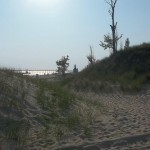
The Singing Sands : Saint Joseph, Michigan, United States
“The space…silence…darkness….light…atoms,” the calm monotonous voice guides me in my “personal journey of self-discovery” within the four tall white walls of the smallest room at Krasl Art Center. What does every single word trigger inside of me? Love, family, children, laughter, freedom…the memories were pouring back against my willingness to give in to them. Each of these small words was powerful in the dark room, lighted only by shimmering beams of white light. The ingenious artist who had arranged the modernistic constellation of silver sheets, mirrors, and glowing planets had, for a second, achieved her goal. I felt like I was another small planet floating independently, away from her orbit.
I often wondered why it took me so long to take that trip and find my way to the silver beaches and the singing sands of Lake Michigan. During the first several months I lived in the United States, after I arrived from Poland, I felt like someone dropped me in the middle of the ocean without a compass. I had no sense of direction and no sense of time, it seemed like all of my internal navigational systems were down. I felt vulnerable and that feeling was very frightening to me, even more than I realized at the time.
My whole geographical understanding of the world was completely lost in the flat land of Indiana. All of my senses were overwhelmed by the unfamiliar surroundings. I could not feel or smell anything. In Przemysl, my home city, I knew the seven hills surrounding the city center and how they are cut in half by the silver ribbon of the San River. It was very easily to understand where everything was in that small beautiful bowl with its mixture of medieval castles and baroque churches. I knew the smell of the city after the rain fell on the cobblestones, a mixture of static, rusted iron, and bus fumes in the arctic air. It took years of small trips for me to figure out North and South and that Chicago was not located in Ohio but in Illinois. I was like a little spider in Robert Laessig’s painting. I wove my silver web, making it larger and larger, expanding out from my home in Wabash, Indiana, until it finally reached the coast and the singing sands of Lake Michigan.
I heard somewhere that the sands of the Sahara Desert are known for the mournful sound they make as the wind blows across the golden dunes. The sound under our feet as my family walked across the beach of Tiscornia Park toward the waves of Lake Michigan sounded like something else. “The sand sounds like Spongebob Square pants!” my daughter, Makenzie, yelled as she kicked the sand several more times to make the sound before running toward the water as fast as she could. I ran after her, my feet making squeaking noises in the sand, until I jumped into the waves. Later that day while devouring jumbo shrimp called The Drunken Sailors at the best restaurant in town down at the local marina, Clementines Too, we found out that the phenomena of the sands is caused by high levels of mica in the sand. The concentration of this mineral gives the sands the ability to make this very specific, though funny, sound.
Over time, I learned how to use my new sense of direction in these unique local places and discover them with my own little family. I stopped feeling constantly numb and could finally feel the lake breeze on my skin, the warm soft golden sand beneath my fingertips, the hot surface of the lighthouse with its chipping paint, the sweaty little hands of my children, the rich taste of the drizzled chocolate cake at DeBrand Chocolate Factory, and the feeling of joy while watching my children climb on the large bronze Hippopotamus, a part of the outdoor exhibit at Krasl Art Center. I found my freedom is finding a new sense of direction and I no longer felt out of place.
About the Author: Sana Szewczyk, a native of Poland, earned a bachelor’s degree in English Literature and Linguistics from Indiana University and Master of Business Administration in Human Resources Management from Indiana Institute of Technology. Her stories have appeared in over sixty publications. Her first collection of stories, “Under a Ginkgo Tree & Other Stories,” was released in February 2012. She lives in Indiana with her husband and two children.
Thank you for reading and commenting. Please enter the Independence Travel Writing competition and tell your story.
The post The Singing Sands in the United States appeared first on We Said Go Travel.
You’re your own in India
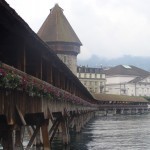
You’re your own in India
And this is how you waft into Lucerne, the weight in your backpack no match for the well-nourished knot in your heart. Hour after hour melts by in blinding stupor. You scoop out your best book but can do no better than caress it absently as the train leads you from one arresting landscape into the next. You claim the window with gratitude as this masterful montage balms your soul all the way.
This is an inter-regional train – on the SBB CFF FFS line – and you’re traversing central Switzerland. This country is a piece of God. Like most things divine, it wears its sheen with a humble half-smile. People go about their business like they could be anywhere else. You marvel at their nonchalant gait and gaze. Look at yourself – you’ve been rambling around here for more than a week now, and your head hurts from all the beauty. You have gasped your way through Berne and Interlaken, Lausanne and Lugano, Vevey and Genève, and it feels like being in one unrelenting reel sequence. This land has thrown up sensations your penmanship is struggling to articulate.
Each morning commences at a train seat, by illuminated glass windows. After the harshest European winter in 44 years, the sun is all too glad to rain down on your eager eyes, but you embrace the discomfort. Over the next few hours, before the train finally nudges you awake at your destined stop, you will slip in and out of gilt-edged consciousness. Even as your weary body yearns to sleep and heal, your eyes remain obstinately awake, embracing every inch of this Swiss grandscape like there will be no tomorrow.
You landed in this country as a prisoner in heart and thought. For months now, you have helplessly loved the squalor of your past. Much as bygones beg to be left alone, you hold on, stubborn, unwilling just yet to call truce. Your thoughts are a parade of manic highs and crushing lows. You dwell compulsively on your grief, relishing its abrasion till your insides threaten to tear. The glory of the mountains makes you want to weep, a reminder that your private sorrows are no match for the world’s wonders.
Had it not been for your demons, you’d have wanted to embrace this moment differently. You might have chosen glee over gloom. You might have cried of laughter and reveled in goose bumps.
Now, the sunshine streaming in from the window is beginning to lift the fog off your soul. You remind yourself that you’re here for renewal. And that the gaping voids in your heart are no match for the magnificence of this land. Here, this minute, you want to get off and walk along every bridge, every lake, every street, every inch of terrain till you can walk no more, till the breeze soothes your inner storms away.
The train comes to a gentle halt. Lucerne says hello.
You head off in the direction of the splendid KappelBrücke – the Chapel Bridge. Created in the 14th century. Destroyed by fire in 1993. Restored, reconstructed, revitalized. Renewed over long years. There it stands, timeless and tall. A subliminal passage waiting to help you cross over to the other side.
You step in. Your knees feel floppy, your feet stiff.
“Will you be demanding maintenance?” they’d asked.
No, you’d bristled. I am a woman. Not a wheelchair.
Your feet move faster now. Your hurts are resurfacing, you’re picking up pace. You’re on a mission to reclaim yourself.
The lake shadows the sky, alternately clear and blue. Humanity feels distant and unreal. This bridge becomes your private cocoon. Tears emerge, you let them stray. Today, you won’t apologize.
The wrongs keep returning, stronger than ever, and you let them. You remember the mouse that bit your toes the cold night you spent on the couch. You remember being told you’re less important than a cricket match. You remember being asked, while packing to leave, if you needed an extra suitcase. You allow all of it to seep into your pores – the hurt, the humiliation, utter wretchedness.
You live it up, because for months, it’s paralyzed you to stone. You live it up, because you’ve decided you will not carry it back home.
The sun has risen higher. The heat feels like sunshine.
You pick up your bag, wipe your face with the sleeve of your dress, and set out to finish the ride.
You walk, brisk and firm, guided by the song in your heart. You walk free, with ownership, with pride. As you gain in momentum, your anguish recedes, your senses unclench, your frown lets go. The winds mingle with your hair and you undo that tight bun. Your head feels warmer, your smile easier, your being lighter. You’re your own.
Thank you for reading and commenting. Please enter the Independence Travel Writing competition and tell your story.
The post You’re your own in India appeared first on We Said Go Travel.
We Said Go Travel
We Said Go Travel is a global community of over sixteen hundred writers with articles from every continent.
Stories are shared with photos and video from a perspective of the transformative power of travel. We Said Go Travel has hosted live and online events as well as travel writing contests around the world. ...more
- Lisa Niver's profile
- 57 followers



